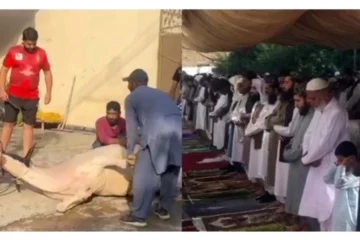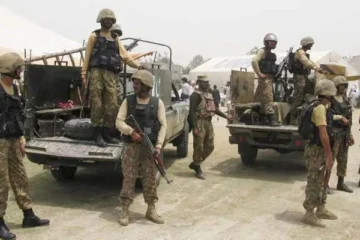Annual Talks Between Commissioners Of India, Pakistan On Indus Waters Treaty Begins In Delhi

A host of issues under the Indus Waters Treaty are likely to be discussed between the Indus Commissioners of the two countries as part of their annual meeting underway in Delhi today.

The talks as part of the annual Permanent Indus Commission meeting are being held after a gap of over two years.
The Indian delegation is being led by PK Saxena who will be joined by his advisors from the Central Water Commission, the Central Electricity Authority and the National Hydroelectric Power Corporation.
The Pakistan delegation is led by its Indus Commissioner Syed Muhammad Meher Ali Shah. The delegation arrived in Delhi on Monday evening.
This year’s meeting will be the first between the two commissioners after the August 2019 abrogation of Article 370 that gave special status to the state of Jammu and Kashmir. The state was also carved into two union territories – Ladakh and Jammu and Kashmir.
India has since cleared several hydro power projects for the region.
Of these, Durbuk Shyok (19 MW), Shankoo (18.5 MW), Nimu Chilling (24 MW), Rongdo (12 MW), Ratan Nag (10.5 MW) are in Leh; while Mangdum Sangra (19 MW), Kargil Hunderman (25 MW) and Tamasha (12 MW) have been cleared for Kargil.
India had informed Pakistan about the projects. The issue is expected to come up for discussion during the meeting.
Ahead of the meeting, Mr Saxena said, “India is committed towards full utilisation of its rights under the Treaty and believes in an amicable solution of issues through discussion.”
The Indus Waters Treaty (IWT) warrants the two commissioners to meet at least once a year, alternately in India and Pakistan.
However, last year’s meeting scheduled to be held New Delhi in March was cancelled, a first since the Treaty came into being, in view of the COVID-19 pandemic.
In July 2020, India had proposed to Pakistan that the meeting for discussing pending issues pertaining to Indus Waters Treaty (IWT) be held virtually in the wake of the coronavirus pandemic, but Pakistan insisted on holding talks at the Attari border check post.
However, in response, India said it is not conducive to hold the meeting at the Attari Joint Check Post due to the pandemic. With the improvement in situation, this mandatory meeting is being held with all COVID-19 related protocols.
The last meeting took place in Lahore in August 2018.
Under the provisions of Indus Waters Treaty, signed between India and Pakistan in 1960, all the water of the eastern rivers – Sutlej, Beas, and Ravi amounting to around 33 million acre feet (MAF) annually – is allocated to India for unrestricted use. The waters of western rivers – Indus, Jhelum, and Chenab – amounting to around 135 MAF annually has been assigned largely to Pakistan.
According to the Treaty, India has been given the right to generate hydroelectricity through run of the river projects on the western rivers subject to specific criteria for design and operation. The Treaty also gives right to Pakistan to raise objections on design of Indian hydroelectric projects on western rivers.












